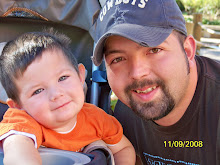It seems one of the hottest topics in the legislature this year is whether or not to legalize gambling. There are very good statistics and arguments that support both sides. The opposition uses other cities that are considered to have failed after gambling legalization. Those in favor of gambling also provide great statistical information on the positive effects of its legalization. So who is correct? In my opinion every state and situation is unique and we won't really know if it is a good or bad decision until we try it.
The legalization of gambling would generate jobs and tax revenue. Currently many Texans serve their gambling needs by going to Louisiana and Oklahoma. Why let those states keep all that tax revenue? We currently support certain forms of gambling such as race tracks and Texas Lotto. The Texas Lottery has the worst odds of any type of gambling and based on research, attracts the poor because of its small price to purchase and its very large payout. People speculate that the legalization of gambling and casinos would create more poverty. Whether casinos open in Texas or not --people who want to gamble will continue to do so no matter how poor or rich they are. Having a casino farther away from "poor people" will not prevent them from spending their last 10 dollars on a Lotto ticket that has 1 in 12 million odds. Some of the issues with research is that they use cities that already had failing economies as examples. In the paper Economic Impacts of Gambling, the author cites a quote from the Los Angeles Times, "But look at Atlantic City. It used to be a slum by the sea, and now, it's a slum by the sea with casinos". We are not trying to bring the Texas economy up from the bottom but improve on it and create more opportunity. Texas is very large and allows for the opportunity to build large casinos and to duplicate the Las Vegas model. With the right measures in place this could bring opportunity.
Another argument is that Casinos attract sex and crime. As stated in the following blog, we already have more than our fair share of a sex problem and we don't have casinos to attract it. How is it that states with Casinos have a smaller share? I do not understand the crime argument. Casinos are known to have some of the highest levels of security and are some of the hardest place to rob. People do not suddenly become violent because casinos open up in their areas, and if casinos attract violent people where would they come from? If you open any major attraction you are bound to have more crime. If you open a large mall, stadium, or a theme park, you increase the number of people located in a small area. Which makes these places targets for thefts, assaults and other crimes. Should we ban all these places to reduce crime?
We will never know if Texas could be the next Las Vegas or if it will bust with the legalization of gambling unless we try it first. Why haven't the cities where gambling has failed to improve the tax revenue or the economy ban gambling? If it is so bad for those states why haven't they stopped? Must not be all that bad!
Test Blog #1
15 years ago
